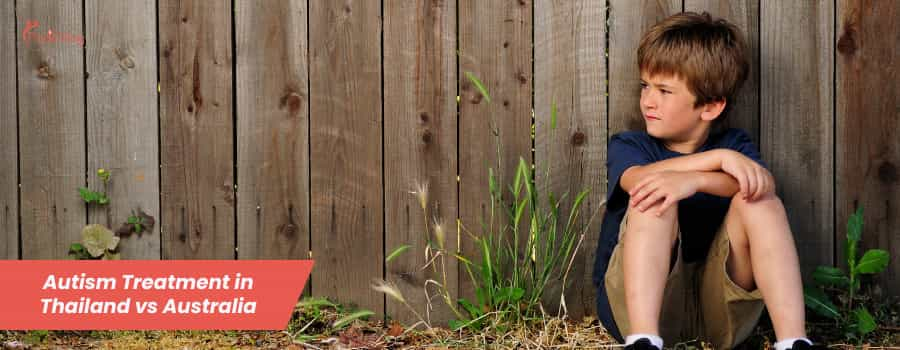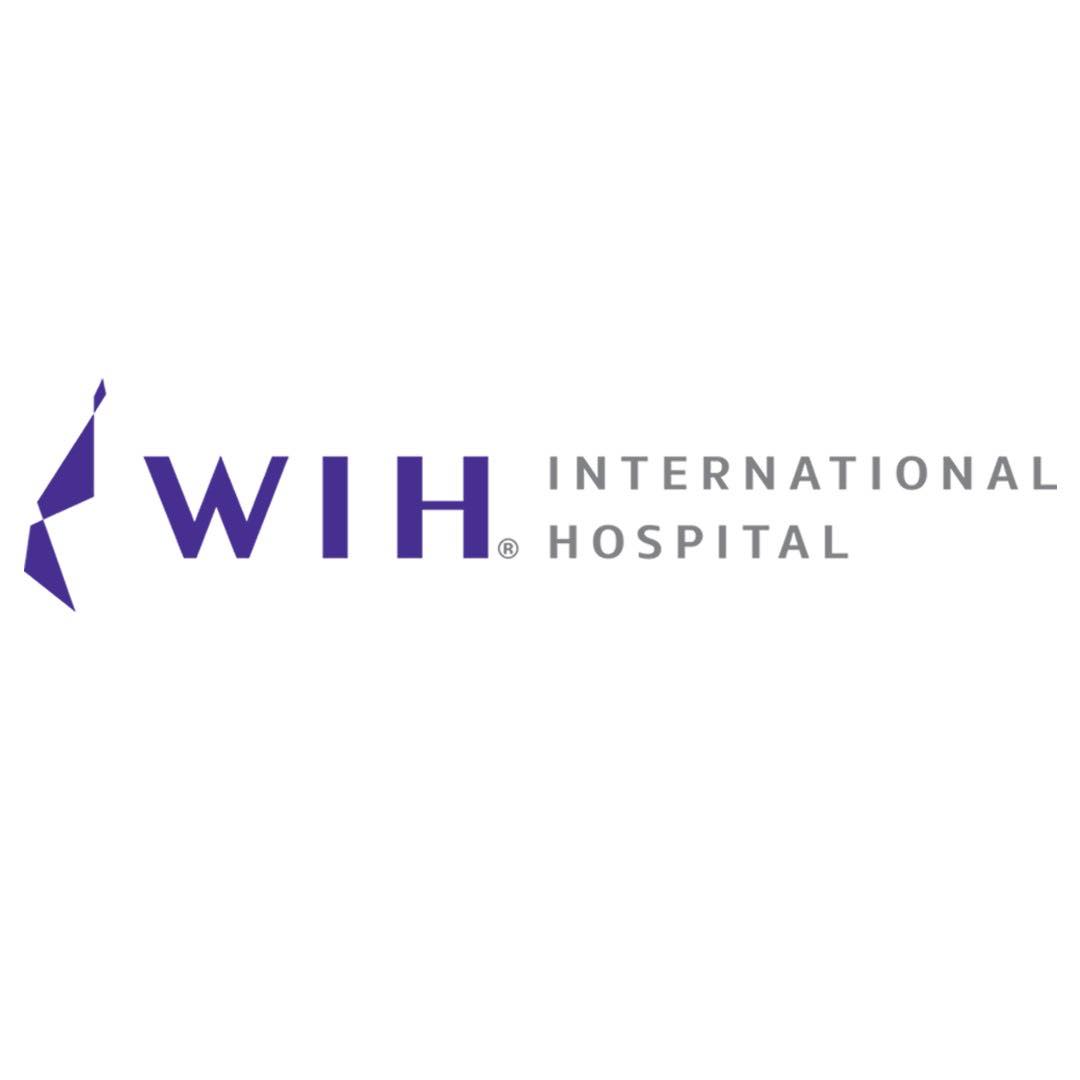
Navigating the complexities of autism spectrum disorder (ASD) treatment options for your child can be overwhelming. When considering international care, Thailand and Australia emerge as prominent destinations, each offering unique approaches and benefits. This guide delves into a detailed comparison to help parents make an informed decision on where to seek the best possible support and therapy for their child's developmental journey.
Making the Right Choice: Autism Care in Asia vs. Oceania
For families considering global options for their child's autism treatment, the choice between destinations like Thailand and Australia involves weighing various factors including cost, quality of care, therapeutic approaches, and logistical considerations. Thailand has gained recognition as a hub for medical tourism, often providing cost-effective and integrated therapy programs, sometimes including alternative and holistic treatments. It attracts families seeking intensive interventions at a lower price point compared to Western countries.
Australia, on the other hand, boasts a highly regulated, Western-standard healthcare system with strong emphasis on evidence-based practices like Applied Behavior Analysis (ABA) and comprehensive support systems. While generally more expensive, it offers robust governmental funding schemes and a well-established network of specialists and educational integration. Understanding these fundamental differences is the first step towards choosing a path that best suits your child's needs and your family's circumstances.
Autism Therapy in Thailand vs. Australia: Key Differences
Deep Dive: Key Capabilities in Autism Care
Thailand's Core Strengths in Autism Treatment
Thailand has carved a niche as a compelling destination for families seeking comprehensive autism interventions, particularly those looking for value. Its key capabilities lie in offering intensive therapy programs at a fraction of Western costs. Many clinics provide a holistic approach, integrating evidence-based therapies like ABA, Speech Therapy, and Occupational Therapy with complementary treatments such as hydrotherapy, art therapy, and even sometimes experimental stem cell therapies (though these require careful consideration and research).
The focus is often on high-frequency, individualized sessions, allowing for quicker progress in some cases. Clinics in popular medical tourism cities like Bangkok, Phuket, and Chiang Mai are well-equipped with modern facilities and employ English-speaking staff, making the experience accessible for international patients. The ability to combine treatment with a supportive, often resort-like environment also contributes to the appeal for families seeking a less clinical setting.
Australia's Leading Edge in Autism Support
Australia stands out with its robust, regulated, and evidence-based approach to autism treatment and support. The country's healthcare system ensures high standards of care, with professionals often holding internationally recognized qualifications (e.g., BCBA for ABA therapists). Key capabilities include a strong emphasis on early intervention programs, particularly Applied Behavior Analysis (ABA), Early Start Denver Model (ESDM), and various speech and occupational therapies, all grounded in extensive research.
A significant advantage is the National Disability Insurance Scheme (NDIS), which provides substantial funding for eligible individuals with autism, covering a wide range of therapies and support services. This scheme significantly alleviates the financial burden for Australian residents. Beyond direct therapy, Australia offers comprehensive family support services, parent training programs, and a structured educational system that aims to integrate children with ASD into mainstream or specialized schools, ensuring long-term developmental support.
Autism Treatment in Thailand: Weighing the Pros and Cons
Pros of Autism Therapy in Thailand
- Significantly Lower Costs: Families can often access intensive, high-quality therapy programs at a fraction of the cost found in Western countries, making long-term treatment more feasible.
- Intensive & Comprehensive Programs: Many clinics offer daily, multi-disciplinary sessions (ABA, Speech, OT, etc.), allowing for accelerated progress in a shorter timeframe.
- Accessibility & Shorter Waiting Times: International patients can often start treatment much faster than in countries with public healthcare systems facing long waitlists.
- Integrated Holistic Approaches: A wider acceptance and integration of complementary and alternative therapies alongside conventional treatments.
- Experienced Medical Tourism Infrastructure: Clinics are accustomed to international patients, offering services like accommodation assistance, translation, and patient coordination.
- Supportive Environment: The cultural emphasis on compassion and family, combined with beautiful surroundings, can provide a less stressful environment for children and families.
Cons of Autism Treatment in Thailand
- Variable Quality & Regulation: While excellent clinics exist, the regulatory landscape is less standardized than in Australia, requiring diligent research to ensure quality and credentialing.
- Limited Long-term Follow-up: Continuity of care can be challenging upon returning home, requiring careful planning for ongoing support and integration.
- Ethical Concerns with Experimental Therapies: Some clinics may offer unproven or experimental treatments like stem cell therapy for autism, which may lack scientific evidence and carry risks.
- Cultural and Language Barriers: While international clinics have English speakers, navigating daily life outside the clinic can present challenges.
- Travel Logistics: Long-distance travel can be stressful for some children with ASD and their families.
Autism Support in Australia: Weighing the Pros and Cons
Pros of Autism Therapy in Australia
- Highly Regulated & Evidence-Based: Strong governmental oversight ensures high standards of care and a focus on scientifically proven therapies like ABA, Speech, and OT.
- National Disability Insurance Scheme (NDIS): Significant financial support for eligible Australian residents with autism, covering a wide range of therapies and services.
- Qualified & Certified Professionals: Therapists and specialists are typically university-trained and registered, often holding international certifications.
- Comprehensive Long-term Support: Integrated approach to care, including educational support, social skill programs, and strong community resources for families.
- Advanced Diagnostic Capabilities: Access to specialized diagnostic centers and multi-disciplinary assessment teams.
- Cultural Familiarity for Westerners: For many English-speaking families, the cultural and linguistic environment is familiar and easier to navigate.
Cons of Autism Treatment in Australia
- Higher Costs for International Patients: Without NDIS eligibility, therapy costs are significantly higher than in Thailand, making long-term private care very expensive.
- Longer Waiting Lists: Publicly funded services and even some private clinics can have substantial waiting times for assessments and therapy initiation.
- Limited Holistic/Alternative Therapies: Less emphasis on or coverage for complementary and alternative treatments compared to Thailand.
- Visa Requirements: Obtaining a medical treatment visa can be a complex and lengthy process for international families.
- Less Flexibility in Program Structure: Programs might be more rigid, adhering strictly to evidence-based protocols, which might not suit all families looking for diverse approaches.
What to Expect: The International Patient Experience
Experience in Thailand
In Thailand, the international patient experience is typically streamlined and highly supportive. Many clinics offer dedicated patient coordinators who assist with everything from appointment scheduling and translation to accommodation and local transportation. Families can expect a warm, empathetic environment, often with a focus on making the child feel comfortable. The option to stay for an extended period allows for intensive, consistent therapy. The vibrant culture and tourist attractions also provide opportunities for family engagement and leisure alongside treatment, potentially making the experience less stressful for the child and caregivers. However, it's vital to confirm the qualifications of therapists and the transparency of the treatment plan.
Experience in Australia
For international patients in Australia, the experience will feel familiar to those from other Western countries. You'll find a highly professional and structured environment with clear communication and adherence to strict ethical guidelines. Clinics will prioritize evidence-based practices and typically involve parents heavily in the therapy process, offering extensive training. While the NDIS benefits are generally for residents, private clinics maintain high standards. International families will need to independently manage logistics like visas, accommodation, and private health insurance. The emphasis is on long-term developmental integration within a supportive community framework, though at a higher out-of-pocket cost for non-residents.
Real Stories from Families on Their Autism Treatment Journey
Maria and Luis, USA (Thailand)
"Our son's progress in Thailand has been remarkable. The intensive ABA therapy, combined with a truly caring staff and beautiful environment, made a huge difference. The costs were manageable, allowing us to pursue treatment we couldn't afford at home. We highly recommend exploring autism therapy in Thailand."
Kate and John, UK (Australia)
"Moving to Australia for our daughter's treatment was the best decision. The level of professional care and the NDIS support have been invaluable. We feel confident in the evidence-based therapies and the long-term educational integration. While it's expensive for visitors, the quality of autism spectrum disorder treatment in Australia is unmatched."
Rebecca, Canada (Thailand)
"Choosing Thailand for my son's speech and occupational therapy was a game-changer. The personalized attention and the daily sessions helped him make huge leaps. We found a fantastic autism clinic in Thailand that truly understood his needs and made us feel at home."
Samantha, New Zealand (Australia)
"Our family was looking for the best autism support in Australia, and we found it. The multi-disciplinary team provided a holistic assessment and tailored therapy plan. The focus on family involvement and integration into school life has been exceptional, giving us peace of mind for his future."
Frequently Asked Questions About International Autism Treatment
Is autism treatment in Thailand effective and safe?
Thailand offers a range of therapies, including ABA, speech therapy, and occupational therapy, delivered by trained professionals. Many clinics cater to international patients and uphold good standards. As with any medical decision, thorough research into a clinic's credentials and patient reviews is crucial to ensure safety and effectiveness.
What is the typical cost of autism therapy in Australia versus Thailand?
Autism therapy in Australia can be significantly more expensive, with ABA therapy potentially costing AUD $80-150 per hour. In Thailand, comparable therapies often range from USD $30-70 per hour, offering substantial savings, particularly for long-term programs. Overall program costs vary greatly by intensity and duration.
Are stem cell therapies for autism legitimate and available in these countries?
Stem cell therapy for autism is considered experimental and not universally recognized as a standard treatment. In Thailand, some clinics offer it, often with claims that lack robust scientific backing. In Australia, stem cell therapies are highly regulated and generally only available through clinical trials. Patients should exercise extreme caution and consult multiple medical professionals before considering such treatments.
How long does an autism treatment program usually last?
The duration of an autism treatment program varies widely depending on the child's individual needs, the intensity of the therapy, and the specific goals. Programs can range from intensive short-term interventions (e.g., 2-4 weeks) to long-term ongoing support for several months or even years.
Do therapists in Thailand speak English?
Many reputable autism clinics in major Thai cities like Bangkok and Phuket, especially those catering to international clients, have English-speaking therapists and support staff. Communication should generally not be an issue in these facilities.
What kind of support is available for parents in Australia?
Australia offers extensive parent training programs, support groups, and governmental funding (like the NDIS) to assist families in navigating autism care. Clinics often integrate parents into the therapy process, providing strategies for home implementation.
Is travel insurance essential for autism treatment abroad in Thailand?
Yes, comprehensive travel and medical insurance is highly recommended when seeking autism treatment abroad. It can cover unforeseen medical emergencies, travel disruptions, and other potential complications, providing peace of mind.
Can my child continue their education during treatment in either country?
Many international clinics and special education centers in Thailand offer integrated educational programs alongside therapy. In Australia, the education system has provisions for children with ASD, and therapy can often be integrated around school hours or through special schools.
What are the visa requirements for medical treatment in Thailand or Australia?
For Thailand, many nationalities can enter on a tourist visa for short stays, but for longer treatment, a medical visa might be necessary. Australia typically requires a specific medical treatment visa, which can involve a more extensive application process. It's crucial to check the latest requirements with the respective embassies or consulates.
How do I choose the best clinic for my child's autism treatment?
Choosing the best clinic involves assessing several factors: the clinic's specialization, therapist qualifications and experience, evidence-based practices, facility accreditation, transparent pricing, patient testimonials, and overall communication. PlacidWay can assist in vetting clinics and providing personalized recommendations based on your child's specific needs and your family's preferences.
Ready to Take the Next Step on Your Child's Autism Journey?
Choosing the right path for your child's autism treatment is a monumental decision, balancing therapeutic needs with practical considerations. This guide provides a foundational comparison, but your child's journey is unique. At PlacidWay, we understand these complexities and specialize in connecting families like yours with world-class, pre-vetted autism treatment centers in Thailand, Australia, and other leading global destinations.
Our dedicated Care Team offers a free, no-obligation consultation to help you compare personalized treatment packages, understand transparent pricing for autism spectrum disorder treatment costs, and address all your specific questions. Let us handle the complexities of planning and logistics, so you can focus on what truly matters: your child's development and well-being.







.jpg)








Share this listing